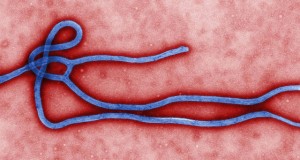Organ trafficking is on the rise horribly and undoubtedly the most gruesome and morally unethical crime. A new study showed that this dark business is facilitated and assisted by legitimate institutions all over the world.
A report by Global Financial Integrity showed that up to 7,000 kidneys are obtained illegally every year. Another study that took place in 2013 revealed, there was need of total 121,272 organs in the Americans, among them 28,954 people had received an organ, where half of the recipients have obtained their organs illegally.
This crime takes place in different ways. Traffickers force or trick the victims into giving up an organ. While sometimes victims formally or informally agree to sell an organ, but they are not paid or paid less than the agreed price.
Most remarkably, vulnerable people are treated for a disease, which may or may not exist but the organs are removed without the victim’s knowledge. The vulnerable people include migrant workers, homeless and illiterate people and others.
It is generally believed that trafficking only takes places for commercial sexual exploitation or enforced labor, but trafficking takes place in many forms including trafficking for organ trade. Organ trade commonly traded is kidneys, liver and other body parts too. It could occur with persons of any age.
A recent report by CNN says organ traffickers steal kidneys in Nepal by tricking villagers into having operations or sometimes taken to India where their kidneys are removed without their knowledge. “If countries do nothing about this problem, the consequences for both donors and recipients can be terrible, as they may have to deal with dreadful health outcomes,” according to Dr. Ana Manzano, a professor in the School of Sociology and Social Policy at the University of Leeds.
Once organs are trafficked, legitimated health care services are giving them the appearance of legitimacy. Trafficking in organ trade is a well planned crime, involving a mass of offenders. Following all are involved in this racket, the recruiter who categorized the vulnerable person, the transporter who brings the person to hospital or clinic, the staff of the hospital or clinic or other medical centers, the medical professionals, the middlemen and contractors who contact with the purchaser, the buyers and the banks where the organs are stored.
But the fact is the entire racket is rarely exposed and the dimensions are not yet appropriately comprehended. Share your experience if you ever face or heard this type of activities surrounding you.
Source: edition.cnn ungift medicaldaily
